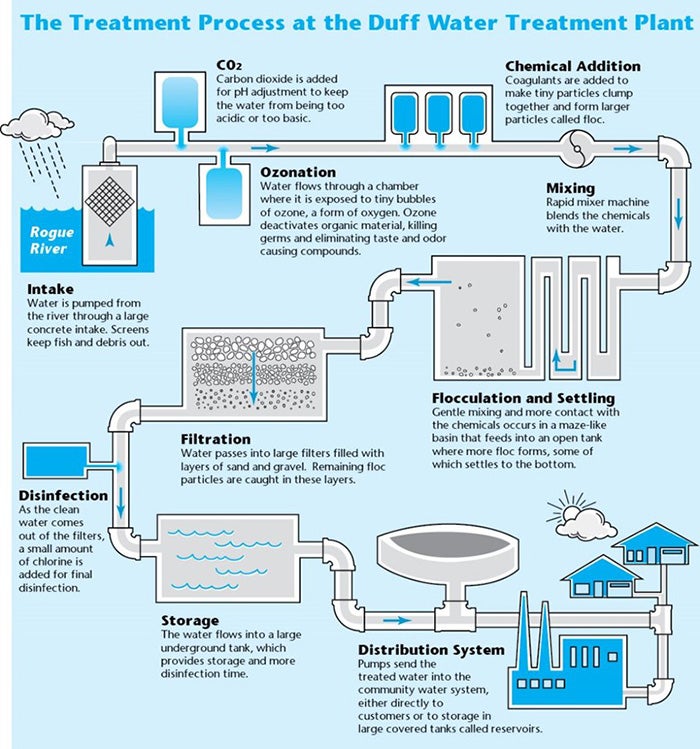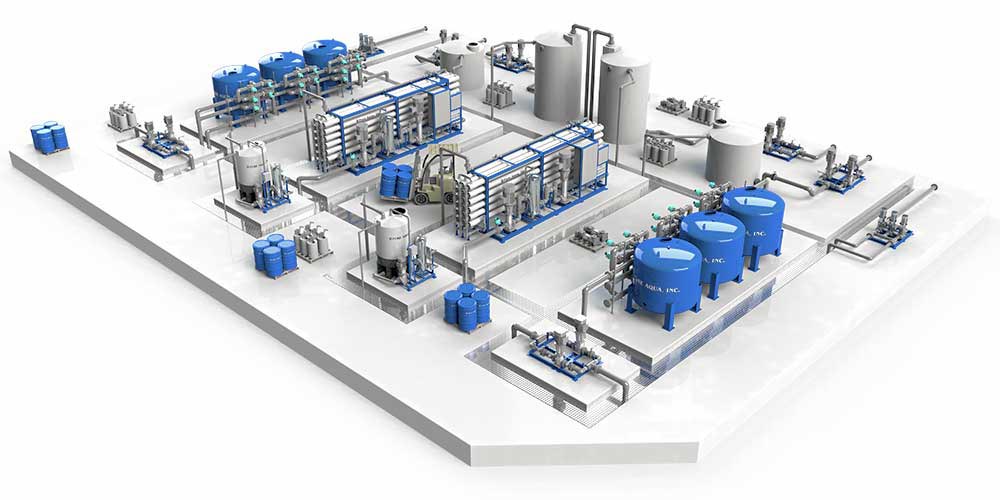Checking Out Water Technology Startups: Exactly How They Reinvent Lasting Solutions
Water Technology startups are arising as critical players in the mission for sustainable services to international water concerns. These firms take advantage of cutting-edge technologies to improve water performance and administration. Their payments attend to pushing difficulties such as deficiency and contamination. Regardless of their capacity, they encounter different challenges that might impact their success. Recognizing these dynamics loses light on the future of water sustainability and the duty these start-ups might play fit it.
The Value of Water Technology in Today's Globe
As international water shortage heightens, the significance of water Technology becomes significantly apparent. Water Technology plays a vital function in attending to the obstacles postured by reducing freshwater sources and raising need. It includes a broad variety of developments, including sophisticated filtering systems, wastewater treatment modern technologies, and smart watering solutions. These advancements not just boost the efficiency of water usage but also advertise sustainable methods throughout various industries, including farming, industry, and urban advancement.
The significance of water Technology prolongs past source management. It promotes durability against environment adjustment effects, such as dry spells and floodings, by supplying adaptive options for water preservation and administration. Furthermore, it sustains public health by making certain access to tidy and secure drinking water. As the world encounters expanding water-related challenges, the combination of innovative water modern technologies is essential for cultivating lasting development and securing water accessibility for future generations.
Ingenious Solutions From Water Tech Startups
While standard strategies to water administration have actually served their function, a new age of water technology start-ups is transforming the market with cutting-edge remedies (Water Technology Startups). These business take advantage of advanced modern technologies to address pressing water issues, such as shortage, contamination, and inefficient circulation. Many startups make use of expert system and machine knowing to enhance water usage and forecast demand, causing even more sustainable practices
In addition, a number of companies concentrate on developing innovative purification systems that remove contaminants and make water safe for intake. Others check out decentralized water treatment technologies, enabling neighborhoods to manage their water sources extra efficiently. Some start-ups are pioneering clever watering options that lessen water waste in agriculture, promoting environmental conservation.
Case Researches: Effective Water Technology Startups
Various water Technology startups have actually become leaders in dealing with international water challenges with innovative techniques. One notable example is Xylem, which focuses on water analytics and clever framework to enhance water usage and reduce waste. Their options have been carried out in various municipalities, demonstrating significant renovations in water administration efficiency.
One more effective start-up, Absolutely no Mass Water, has created solar-powered hydropanels that remove water vapor from the air, supplying lasting alcohol consumption water in dry regions. Water Technology Startups. This Technology has been released in several countries, making sure areas have access to clean water
AquaVenture Holdings runs a diverse portfolio of water-as-a-service options, resolving water shortage with desalination and wastewater treatment. Their projects have actually proven essential in regions dealing with extreme water scarcities, showcasing the possibility of ingenious water modern technologies to create long lasting, positive influences. These case research studies highlight the transformative possibility of startups in the water Technology sector.
The Function of Smart Technology in Water Management
Smart Technology plays a crucial function in contemporary water management by leveraging IoT applications to optimize source use. Data analytics improves efficiency by supplying actionable insights, while remote monitoring services allow real-time oversight of water systems. Together, these advancements change how water is handled, advertising sustainability and functional efficiency.
IoT Applications in Water
As water scarcity and administration obstacles escalate worldwide, the integration of Internet of Things (IoT) applications has become a critical service in maximizing water sources. IoT Technology assists in real-time surveillance and evaluation of water supply, enabling more effective usage and management. Sensing units deployed in different water facilities can track quality, flow rates, and leakage, supplying important data to stakeholders. This information encourages customers and energies to make educated choices, lowering waste and improving conservation initiatives. In addition, clever irrigation systems use IoT to optimize water shipment for farming, making certain that plants obtain the correct amount of water at the correct time. Overall, IoT applications are changing typical water management practices, cultivating sustainability and durability in water source systems.
Information Analytics for Effectiveness
Using data analytics is important for enhancing effectiveness in water monitoring. Water Technology start-ups are increasingly making use of sophisticated analytics to enhance source appropriation and minimize waste. By analyzing data from various resources, these start-ups can determine patterns and patterns that inform much better decision-making. Anticipating analytics can forecast water need, enabling utilities to readjust supply accordingly, consequently decreasing excess and shortages. In addition, real-time information processing enables the instant detection of leaks and ineffectiveness within circulation systems, greatly minimizing functional prices. Data-driven insights empower stakeholders to carry out targeted conservation strategies, promoting lasting methods. Basically, incorporating data analytics into water management not just improves procedures however likewise promotes long-lasting sustainability in water source usage.
Remote Tracking Solutions
While standard water monitoring systems frequently battle with ineffectiveness, remote monitoring remedies are transforming just how water resources are managed. These cutting-edge innovations enable real-time data collection and analysis, allowing stakeholders to keep an eye on water high quality, flow prices, and use patterns from afar. Making use of sensing units and IoT tools, remote surveillance gives instant understandings that promote positive decision-making. This change not only boosts functional effectiveness however additionally promotes sustainability by lowering water waste and enhancing resource allocation. Additionally, remote tracking systems can determine potential issues before they escalate, thus decreasing the risk of contamination or facilities failure. As water Technology start-ups proceed to establish these solutions, the market is poised for substantial improvements in lasting water monitoring practices.
Challenges Facing Water Technology Startups
Water Technology startups experience considerable difficulties that can impede their growth and success. Key issues consist of safeguarding ample funding, steering through complex regulatory atmospheres, and competing in a crowded industry. These obstacles call for critical preparation and innovation to get rid of.
Financing and Financial Investment Challenges
Innovation in water Technology holds enormous potential for dealing with worldwide obstacles, start-ups in this sector commonly deal with significant funding and investment hurdles. Numerous financiers stay careful, viewing the water industry as risky due to its complex governing landscape and lengthy growth timelines. In addition, start-ups typically have a hard time to show prompt profitability, which can hinder potential backers. Traditional venture funding may forget water modern technology, favoring industries with quicker returns, such as tech or durable goods. Protecting grants and government funding can be competitive and time-consuming, further complicating financial stability. Because of this, several innovative water Technology startups find themselves in a ragged edge, needing imaginative financing strategies to navigate these click here economic obstacles and attain their objectives
Regulatory Conformity Issues
Steering governing conformity is a substantial obstacle for start-ups in the water Technology sector, as they need to come to grips with a myriad of regional, national, and worldwide laws. These guidelines typically include water top quality standards, environmental management legislations, and security protocols, which can vary widely throughout jurisdictions. Start-ups may discover it challenging to browse this facility landscape, especially when scaling operations or getting in brand-new markets. The prices connected with conformity can be considerable, drawing away sources away from technology and product advancement. In addition, delays in getting needed licenses or certifications can hinder growth and market access. A robust understanding of regulative structures is necessary for these start-ups to ensure lasting procedures and prevent possible legal effects.
Market Competition Characteristics
As water Technology startups arise in an affordable landscape, they face many challenges that can hamper their development and technology. Developed firms often control the market, leveraging sources and experience to keep their settings. Startups have problem with restricted financing, which restricts study and growth capacities, making it challenging to contend on Technology and rates. In addition, the quickly developing nature of water innovations demands constant adjustment, further straining startup resources. Governing hurdles can complicate market entry, as compliance with environmental standards is essential yet costly. Finally, bring in experienced ability in a specific niche area presents one more barrier, as bigger firms may provide even more attractive work bundles. Subsequently, these elements develop an intricate atmosphere for water Technology start-ups aiming to do well.

The Future of Water Technology and Sustainability

The future of water Technology will likely concentrate on incorporating expert system and information analytics to enhance water circulation and usage patterns. By utilizing real-time information, companies can predict lacks and handle resources better. Lasting methods will certainly become a cornerstone of the industry, motivating round economies where water is reused and treated. Eventually, the ongoing development of water Technology will certainly be crucial in producing durable facilities efficient in meeting the difficulties posed by climate change and population development while promoting ecological stewardship.
Frequently Asked Inquiries
What Are the Key Metrics for Reviewing Water Technology Startups?
Secret metrics for assessing water Technology startups consist of market possibility, scalability, consumer acquisition prices, income growth, modern technology development, regulatory compliance, ecological effect, affordable benefit, and group experience, all crucial for figuring out long-lasting viability and success.
Exactly How Can Individuals Assistance Water Technology Innovations?
Individuals can sustain water Technology innovations by investing in start-ups, promoting for policy changes, joining community initiatives, sharing understanding about sustainable practices, and promoting awareness of water concerns through neighborhood events and social media.
What Prevail Financing Sources for Water Tech Startups?
Common financing sources for water technology startups consist of venture resources, federal government grants, crowdfunding platforms, angel capitalists, and business collaborations. These economic methods assist assist in development and growth in lasting water monitoring modern technologies.

Which Industries Benefit Many From Water Technology Advancements?
Industries such as farming, energy, production, and metropolitan solutions profit substantially from water Technology improvements. These technologies improve water efficiency, minimize prices, and advertise sustainable practices, inevitably adding to ecological conservation and resource management.
Are There Any Kind Of Governing Obstacles Specific to Water Technology?
Yes, water Technology faces governing obstacles, including compliance with environmental requirements, allowing processes, and varying regional laws. These intricacies can hinder development and slow the application of brand-new modern technologies in the water management industry.
Water Technology start-ups are arising as crucial gamers in the pursuit for sustainable solutions to international water concerns. As worldwide water deficiency escalates, the importance of water Technology becomes increasingly apparent. Others check out decentralized water treatment innovations, permitting areas to manage their water resources extra properly. Another effective startup, No Mass Water, has established solar-powered hydropanels that extract water vapor from the air, providing lasting alcohol consumption water in arid areas. Their projects have actually confirmed essential in areas dealing with severe water shortages, showcasing the potential of cutting-edge water innovations to create long-term, favorable influences.